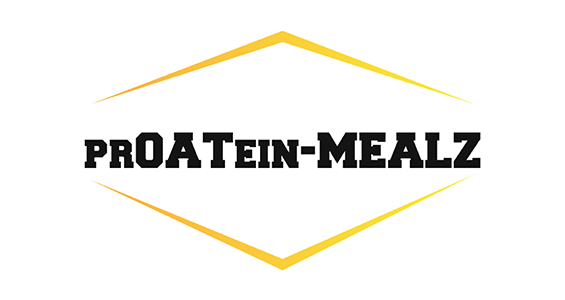In recent years, the popularity of veganism has soared, driven by ethical, environmental, and health considerations. However, to thrive on a vegan diet, it's essential to pay close attention to the intake of protein, minerals and vitamins. Let's explore how to eat balanced vegan meals that provide all the essential nutrients your body needs.
1. Embrace a Variety of Plant-Based Foods:
The key to obtaining a wide range of minerals and vitamins on a vegan diet is diversity. Incorporate a colorful array of fruits, vegetables, whole grains, legumes, nuts, and seeds into your meals. This ensures you're not missing out on any essential nutrients.
1. Embrace a Variety of Plant-Based Foods:
The key to obtaining a wide range of minerals and vitamins on a vegan diet is diversity. Incorporate a colorful array of fruits, vegetables, whole grains, legumes, nuts, and seeds into your meals. This ensures you're not missing out on any essential nutrients.
2. Harness the Power of Legumes:
Legumes like beans, lentils, and chickpeas are a treasure trove of essential nutrients. They are packed with protein, fibre, iron, and zinc, making them a vegan diet staple.
3. Prioritize Calcium:
Calcium is vital for strong bones and teeth. While dairy products are a traditional source, vegans can turn to fortified plant-based milk (like almond, soy, or oat milk), tofu, broccoli, kale, and almonds to meet their calcium needs.
4. Don't Overlook Iron:
Iron is crucial for carrying oxygen in your blood. Opt for iron-rich foods such as lentils, beans, tofu, fortified cereals, spinach, and pumpkin seeds. To boost absorption, pair these with vitamin C-rich foods like citrus fruits or bell peppers.
Legumes like beans, lentils, and chickpeas are a treasure trove of essential nutrients. They are packed with protein, fibre, iron, and zinc, making them a vegan diet staple.
3. Prioritize Calcium:
Calcium is vital for strong bones and teeth. While dairy products are a traditional source, vegans can turn to fortified plant-based milk (like almond, soy, or oat milk), tofu, broccoli, kale, and almonds to meet their calcium needs.
4. Don't Overlook Iron:
Iron is crucial for carrying oxygen in your blood. Opt for iron-rich foods such as lentils, beans, tofu, fortified cereals, spinach, and pumpkin seeds. To boost absorption, pair these with vitamin C-rich foods like citrus fruits or bell peppers.
5. Get Your Vitamin B12:
Vitamin B12 is primarily found in animal products, so vegans should consider fortified foods like plant-based milk, breakfast cereals, or B12 supplements to maintain healthy nerves and red blood cells.
6. Load Up on Leafy Greens:
Dark, leafy greens like kale, spinach, and collard greens are rich in vitamins A and K, as well as minerals like magnesium and calcium. Incorporate them into your diet for overall health and well-being.
Vitamin B12 is primarily found in animal products, so vegans should consider fortified foods like plant-based milk, breakfast cereals, or B12 supplements to maintain healthy nerves and red blood cells.
6. Load Up on Leafy Greens:
Dark, leafy greens like kale, spinach, and collard greens are rich in vitamins A and K, as well as minerals like magnesium and calcium. Incorporate them into your diet for overall health and well-being.
7. Don't Forget Omega-3s:
While fatty fish is a conventional source of omega-3 fatty acids, vegans can obtain these essential fats from flaxseeds, chia seeds, hemp seeds, and walnuts. Omega-3s are essential for brain health and reducing inflammation.
8. Plan Your Meals:
To ensure you're meeting all your nutritional needs, consider meal planning. This way, you can balance your intake of vitamins and minerals over the course of the day or week.
9. Consider Supplements:
Even with a well-planned vegan diet, it can be challenging to get every nutrient in sufficient quantities. Consult a healthcare professional to determine if you need supplements for specific nutrients like vitamin D or omega-3s.
10. Listen to Your Body:
Lastly, pay attention to how your body feels and functions. If you're experiencing unusual fatigue, weakness, or other health concerns, consult a healthcare provider to rule out any nutrient deficiencies.
While fatty fish is a conventional source of omega-3 fatty acids, vegans can obtain these essential fats from flaxseeds, chia seeds, hemp seeds, and walnuts. Omega-3s are essential for brain health and reducing inflammation.
8. Plan Your Meals:
To ensure you're meeting all your nutritional needs, consider meal planning. This way, you can balance your intake of vitamins and minerals over the course of the day or week.
9. Consider Supplements:
Even with a well-planned vegan diet, it can be challenging to get every nutrient in sufficient quantities. Consult a healthcare professional to determine if you need supplements for specific nutrients like vitamin D or omega-3s.
10. Listen to Your Body:
Lastly, pay attention to how your body feels and functions. If you're experiencing unusual fatigue, weakness, or other health concerns, consult a healthcare provider to rule out any nutrient deficiencies.
In conclusion, maintaining a balanced vegan diet rich in protein, minerals and vitamins is entirely achievable with careful planning and a commitment to diversifying your food choices. By incorporating a rainbow of plant-based foods into your meals and supplementing essential nutrients, you can nourish your body while enjoying the many benefits of a vegan lifestyle.

